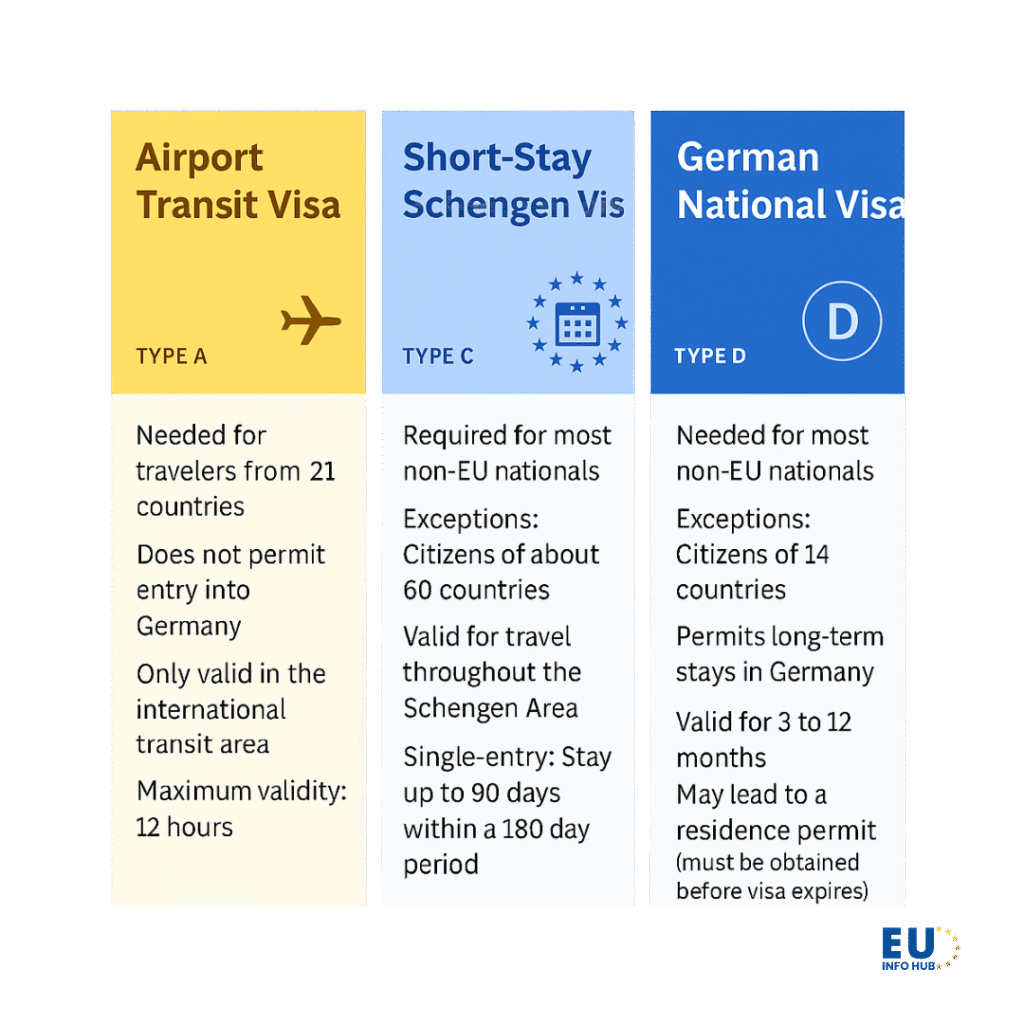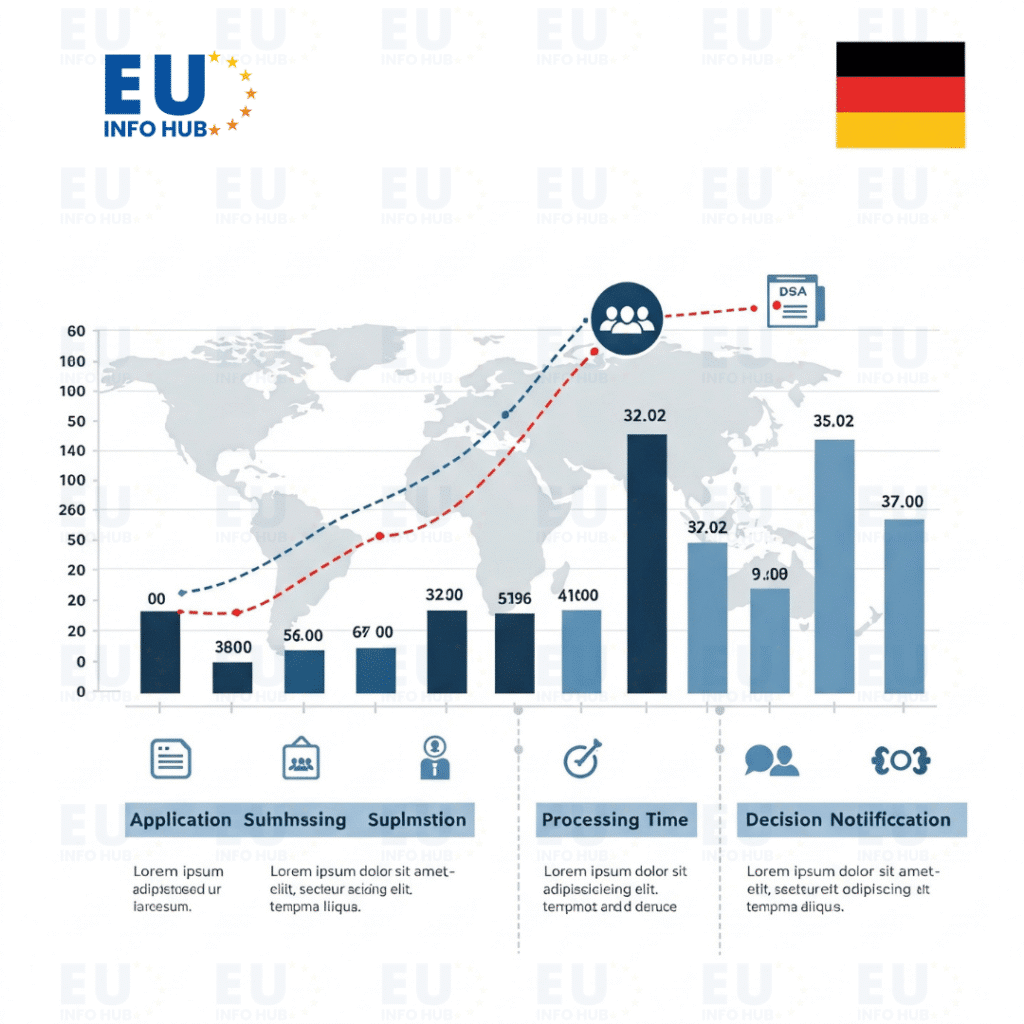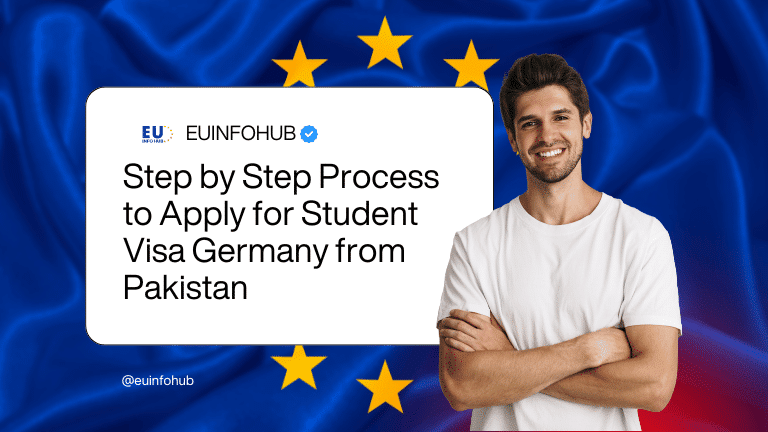German Student Visa Process Tips
Germany, known for its high-quality education and low tuition fees, draws thousands of international students annually. But before packing your bags, you’ll need to navigate one of the most crucial hurdles—the German student visa process. This guide dives deep into proven tips and actionable advice to ensure you’re ready for every twist and turn on your journey to studying in Germany.
What is a German Student Visa?
A German student visa is an entry permit allowing non-EU students to legally live and study in Germany. It’s essential for anyone planning to pursue a full-time academic program in Germany. The visa grants you the ability to enter Germany, and more importantly, it is a stepping stone to your student residence permit.
You can apply for it at your home country’s nearest German embassy or consulate. And here’s a little secret—meticulous documentation can significantly speed up the process.
Types of German Student Visas
Not all student visas are the same. Depending on your academic stage and readiness, you might apply for:
- Student Applicant Visa (Visum zur Studienbewerbung): This is for those still exploring universities or waiting for an admission letter.
- Student Visa (Visum zu Studienzwecken): This is for admitted students ready to start their studies.
- Language Course Visa: Short-term visa to study German, not valid for long-term academic programs.
Choosing the right one based on your situation is not just smart—it’s crucial.

Who Needs a German Student Visa?
You’ll need a student visa if you’re from outside the EU/EEA or not from a visa-exempt country like the USA or Canada. However, even citizens of visa-free countries must apply for a residence permit once in Germany.
A good rule of thumb? If you plan to stay in Germany longer than 90 days, play it safe and apply for a student visa. Even citizens of visa-free countries must apply for a residence permit once in Germany. This permit is necessary to reside in Germany for the duration of your studies legally.
Document Checklist for German Student Visa
| Required Document | Details | Tips |
|---|---|---|
| Valid Passport | Must be valid for at least 6 months beyond your planned stay | Make sure all pages are intact and clean |
| University Admission Letter | Official letter from a German university | Keep both original and copies |
| Proof of Financial Resources | Blocked account with approx. €11,172 (2025 amount) | Get the bank certification in English or German |
| Health Insurance | Coverage for the entire stay in Germany | Must meet German requirements |
| Visa Application Form | Completed and signed | Fill out all sections, no blank spaces |
| Biometric Photos | According to specifications | Recent photos (not older than 6 months) |
| CV/Resume | In English or German | Include all educational qualifications |
| Motivation Letter | Explaining your study plans | Be specific about career goals |
| Academic Certificates | Previous degrees and transcripts | With certified translations if not in German/English |
| Language Proficiency | German (DSH/TestDaF) or English (IELTS/TOEFL) | Depends on program language |
Proof of Financial Resources (Blocked Account & More)
You must show you have sufficient funds to support yourself in Germany to get your visa. The most common methods include:
- Opening a blocked account with €934/month
- Scholarship award letters
- Financial guarantee from a German resident (Verpflichtungserklärung)
Opening a blocked account early can save you time and stress.

Blocked Account Options Comparison
| Provider | Setup Fee | Monthly Fee | Processing Time | Special Features |
|---|---|---|---|---|
| Expatrio | €49 | None | 2–3 days | Package with insurance and accommodation search |
| Fintiba | €89 | €4.90 | 1–2 days | Mobile app for account management |
| Deutsche Bank | €150 | Varies | 1–3 weeks | Physical bank presence in Germany |
| Coracle | €69 | €5 | 1–3 days | Multi-currency options |
| X-patrio | €50 | None | 2–3 days | Student discounts on other services |
Securing a Letter of Admission
Without this golden ticket, your application hits a wall. Make sure the letter is:
- Official
- On university letterhead
- Contains your name, course details, and start date
Pro tip: Print multiple copies for visa and residence permit use.
Visa Application Forms and Where to Get Them
Application forms are available on the official website of your local German mission. Please fill them out neatly—preferably digitally—before printing.
Watch out for outdated forms circulating on unofficial sites.
Getting a Valid Passport
Your passport must be valid for the entire study period in Germany. If it’s nearing expiration, renew it before applying.
When to Start the Visa Process
Start the visa process at least 3–4 months before your intended travel date. This early start will give you a sense of control and ensure you’re well-prepared for every step of the process.
German Student Visa Process Timeline
| Stage | Timeframe | Action Items |
|---|---|---|
| Pre-Application | 6–8 months before departure | Research universities, apply for programs |
| University Application | 4–6 months before departure | Submit applications, await admission letter |
| Blocked Account Setup | Upon receiving admission | Transfer funds (€11,172 for 2025) |
| Embassy Appointment | As soon as possible after admission | Book online, prepare documents |
| Visa Interview | 2–3 months before departure | Attend with complete documentation |
| Visa Processing | 6–12 weeks | Wait for decision |
| Pre-Departure | Upon visa approval | Book flights, arrange accommodation |
| Arrival in Germany | Within visa validity | Register address within 2 weeks |
| Residence Permit | Before visa expiry | Apply at local Ausländerbehörde |
Common Mistakes and How to Avoid Them
Mistakes during the visa process can lead to delays or rejections. These are some common pitfalls to dodge:
- Incomplete documents: Ensure everything on the checklist is submitted.
- Wrong visa type: Misapplying can set you back months.
- Unclear financial proof: The embassy won’t guess—clarity is vital.
- No translation of documents: Non-English or non-German documents must be translated and notarized.
Double-check, even triple-check. It might seem tedious, but attention to detail can make or break your application.
Embassy Appointment Tips
Booking an appointment at the German embassy can feel like trying to get concert tickets—slots fill up fast. Here’s how to improve your chances:
- Register early: As soon as you have your admission letter.
- Check daily: New slots sometimes open at midnight or early morning.
- Join cancellation waitlists: Some embassies offer this option.
Stay persistent and flexible with timing.
Preparing for the Visa Interview
Think of this as a friendly chat, but you must come prepared. Tips for acing the interview include:
- Dress smartly: A professional appearance makes a great impression.
- Be honest and confident: Don’t memorize answers; understand your intentions.
- Know your course and university: You should articulate why you chose them.
It helps to practice with a friend or mentor beforehand.
Booking Appointments the Right Way
Go directly to the official website of your regional German embassy or consulate. Avoid third-party services, which often charge exorbitant fees or scam applicants.
If in doubt, email the embassy directly to confirm the correct process.
German Missions in Different Countries
Each German mission may have slightly different processes or documentation requirements. For example:
- India: VFS Global handles submissions.
- Nigeria: Uses online appointment portals.
- Pakistan: Requires email-based booking confirmations.
Always read the specific instructions for your home country’s German mission.
Navigating Embassy Website Portals
Embassy websites aren’t always the most user-friendly. However:
- Bookmark the visa section
- Follow the embassy’s social media for updates
- Use Chrome’s translate feature if the page is in German
Persistence pays off here.
Frequently Asked Interview Questions
Here are questions you might encounter:
- Why did you choose Germany?
- What do you plan to study?
- How will you finance your stay?
- What will you do after your studies?
- Have you ever traveled abroad?
Practice answering them clearly and confidently.
Dressing and Acting Professionally
Yes, appearances matter. Opt for business casual attire. Sit straight, make eye contact, and thank the officer for their time. These small gestures count.
How to Explain Your Study Intentions Clearly
Avoid vague responses. Instead, structure your explanation like this:
- Interest: Why did you choose your field
- Goal: How the course fits into your career
- Relevance: Why Germany, and why now?
Keep it concise but passionate.
Red Flags During Interviews
Embassy officers are trained to spot inconsistencies. Common red flags include:
- Contradictory answers
- Unclear career goals
- Over-reliance on family funds without documentation
Be prepared to justify every part of your application.
How to Open a Blocked Account
This account temporarily restricts access to your funds, proving you can support yourself. You can open it via:
- Expatrio
- Fintiba
- Deutsche Bank (in-person, longer process)
Submit the confirmation document with your application.
Recommended Banks for International Students
For faster processing and student-friendly services, consider:
- N26 (digital bank, easy sign-up)
- Deutsche Bank (more traditional)
- Sparkasse (vast branch network)
Once in Germany, you’ll need a regular account too.
Alternatives to a Blocked Account
While the blocked account is the most common method, you can also:
- Submit a scholarship letter
- Provide a sponsor declaration
- Use a bank guarantee
Each method requires specific proof, so check with the embassy.
Visa Processing Time Expectations
On average, processing takes 6 to 12 weeks. However, it varies by country and embassy load.
Submit early and don’t book flights until your visa is approved.

Tracking Your Application
Most embassies don’t offer detailed tracking. But if you submitted via VFS or another third-party service, you might get email or SMS updates.
If it’s been over 8 weeks, follow up with the embassy by email.
What to Do If Delayed
Delays happen. Here’s what you can do:
- Email politely for updates
- Contact your university for possible enrollment extensions
- Avoid booking non-refundable flights or accommodation
Patience and preparation are key.
Next Steps After Getting Your Visa
Congratulations! Now it’s time to:
- Book your flight
- Arrange accommodation
- Pack the necessary documents
- Attend pre-departure orientations
Celebrate, but also stay organized.
Booking Your Flight
Book early for cheaper rates. Consider student fare programs like:
- StudentUniverse
- STA Travel
- Lufthansa’s student deals
Always keep a printed and digital copy of your ticket.
Pre-departure Essentials
Before boarding, make sure you:
- Print out your visa and admission letter
- Pack warm clothes if arriving in winter
- Have euro cash and a travel card
Double-check luggage allowances, too.
Getting Health Insurance for Germany
You can’t register at a German university without proof of insurance. Options include:
- Public providers: TK, AOK (ideal for students under 30)
- Private insurance: Mawista, EDUCARE24
Buy this before your enrollment date.
Student Accommodation Tips
Housing in Germany can be tight. Start early by checking:
- Student dormitories (Studierendenwerk)
- WG-Gesucht (shared flats)
- Facebook student groups
Never send deposits without signing a proper lease.
Part-Time Job Rules for Students
Yes, you can work—but there are limits:
- 120 full or 240 half days per year
- No self-employment
- Must inform the Ausländerbehörde
Jobs in cafés, retail, and tutoring are popular among students.
Registering at a German Address
Within 2 weeks of arrival, register at the Bürgeramt. You’ll need:
- Your rental agreement
- Passport and visa
- Wohnungsgeberbestätigung (landlord confirmation)
This is required for getting your residence permit and bank account.
Applying for a Residence Permit
Apply at your local Foreigners’ Office (Ausländerbehörde) before your visa expires. Documents needed include:
- Proof of accommodation
- Health insurance
- Enrollment certificate
- Financial proof
Appointments can take weeks—book early!
Visa Rejection Reasons and Appeals
Rejections hurt, but they’re not the end. Common reasons include:
- Insufficient finances
- Unclear study intentions
- Missing documents
You can appeal the decision or reapply with improved documentation.
Can You Reapply and How?
Absolutely. If rejected, carefully review the reasons, fix the issues, and reapply. There’s no mandatory wait time unless specified.
Legal Help and Counseling Options
If you’re overwhelmed, reach out to:
- DAAD Student Support
- International offices of your university
- Legal aid services specializing in immigration
You don’t have to navigate it alone.
FAQs about German Student Visa
How long does the visa process take?
Usually 6–12 weeks, but it varies by country and time of year.
Can I work in Germany with this visa?
Yes, up to 120 full or 240 half days annually.
What if my visa is rejected?
You can appeal or reapply with better documentation.
Do I need German language skills?
If your program is in German, English programs don’t require it.
Is health insurance mandatory?
Yes. You need proof before enrolling in any university.
Can I bring dependents with me?
In limited cases, yes—especially for PhD students or families.
Conclusion
Navigating the German student visa process might seem daunting initially, but success is within reach with the proper guidance, a well-organized checklist, and patience. Germany offers world-class education, a vibrant student life, a multicultural society, and endless opportunities for personal and professional growth. Stick to the process, keep your paperwork in order, and always stay proactive. With these tips and tricks, your dream of studying in Germany is just a visa away.
















3 thoughts on “Powerful Guide: 25+ Tips to Navigate the German Student Visa Process Successfully”